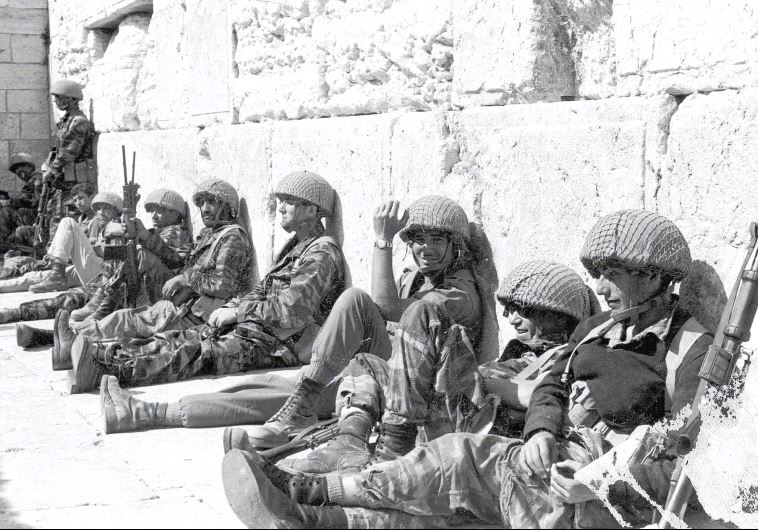Veterans of 1967 conflict tell war stories at Knesset
Much of discussion devoted to boosting settlements; Meretz MKs boycott commemorative meetings.
 IDF Paratroopers relax after liberating the Western Wall during the Six Day War(photo credit: IDF SPOKESMAN’S UNIT)
IDF Paratroopers relax after liberating the Western Wall during the Six Day War(photo credit: IDF SPOKESMAN’S UNIT)